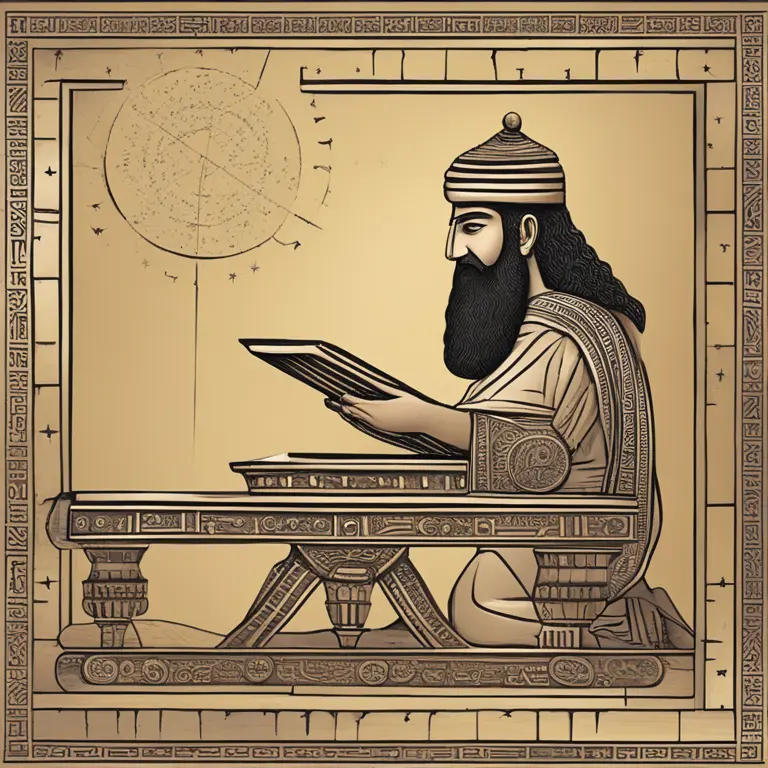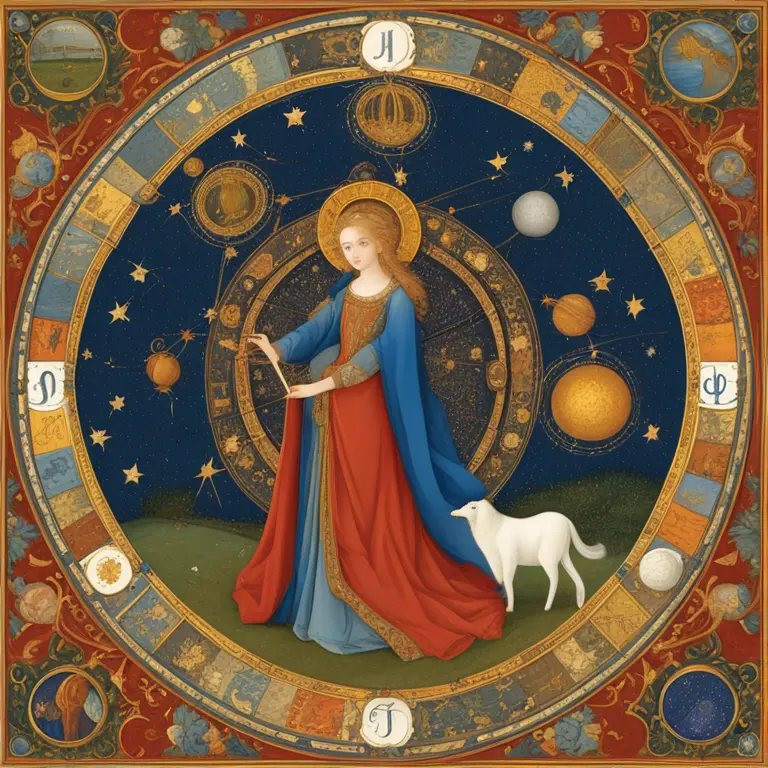
The Origin of Astrology: Ancient Skies and Modern Times
The birth of astrology is an intriguing tale that traces back to ancient civilizations. Discover where astrology began and how it evolved into the practice we know today.
article by Priya Deshmukh
Ancient Beginnings
Astrology's roots go deep into human history. Its origins stretch back thousands of years, with the earliest records from the 3rd millennium BCE. The Babylonians, a civilization in the region of Mesopotamia, are often credited with the development of one of the earliest forms of astrology. They watched the skies, charting the movements of planets and stars, discerning patterns and attributing mythological significance to celestial events. Their observational skills were the foundation of astrological practice, allowing them to make predictions and align their activities with what they perceived as cosmic rhythms.

The Evolution and Spread
From Babylon, astrology spread to other cultures through trade and conquest. The Egyptians and Greeks adapted it to their own understanding of the cosmos, with the Greeks having a significant impact on the formulation of astrology as we know it. Notable figures such as Ptolemy contributed to this field with texts like the Tetrabiblos, which remained a reference for astrologers for centuries. By the time of the Roman Empire, astrology had become intertwined with daily life, guiding decisions from agriculture to politics.

Astrology in the Middle Ages
Throughout the Middle Ages, astrology continued to flourish, experiencing both acceptance and skepticism. Islamic scholars preserved and extended astrological knowledge during Europe's Dark Ages, playing a crucial role in astrology's survival. This knowledge returned to Europe during the Renaissance, leading to a revival in astrological studies. Astrology enjoyed patronage from the elite, including royalty, who relied on astrologers for guidance in both personal and state affairs.

The Modern Era of Astrology
The Enlightenment brought a more critical view of astrology, leading to its decline in intellectual circles as astronomy and other sciences gained prominence. However, astrology saw a resurgence in the 19th and 20th centuries, partly due to the spiritualist movement. In contemporary times, astrology has woven its way into popular culture with daily horoscopes in newspapers, personalized readings, and a strong presence on the internet. Beyond mere entertainment, for many, astrology offers personal insight and a way to navigate life's complexities.
Astrology Today and Scientific Views
Astrology in the 21st century maintains a curious relationship with science. Despite skepticism from the scientific community, astrology's popularity does not wane. It evolves with technologies such as computer-generated birth charts and astrological software, making it more accessible than ever. Astrology has also seen integration into modern wellness and mindfulness practices, reflecting society's enduring fascination with celestial influence over our lives.
The Cultural Impact
Astrology's influence extends to numerous cultures worldwide, each adding a unique touch to traditional astrological practices. Vedic astrology in India, for instance, continues to be integral to various aspects of life, including marriage and career decisions. Western astrology, with its twelve zodiac signs, remains prevalent in many societies, often merging with local traditions and views on destiny and personality.
Published: 2/5/2024
Modified: 2/5/2024
More predictions
Come back here soon to learn more about yourself and your future


Zodiac Signs: Dates and Meanings
A concise guide detailing the dates and fundamental characteristics of the twelve zodiac signs.


Zodiac Signs' Essential Elements
Discover what each zodiac sign simply can't live without. Immerse yourself in the world of celestial necessitates unique to every sign.


From Zodiac Signs to Tarot Cards: A Celestial Guide
Connect the cosmic dots between your zodiac sign and the tarot with this insightful guide into the esoteric relationship of astrology and tarot card readings.